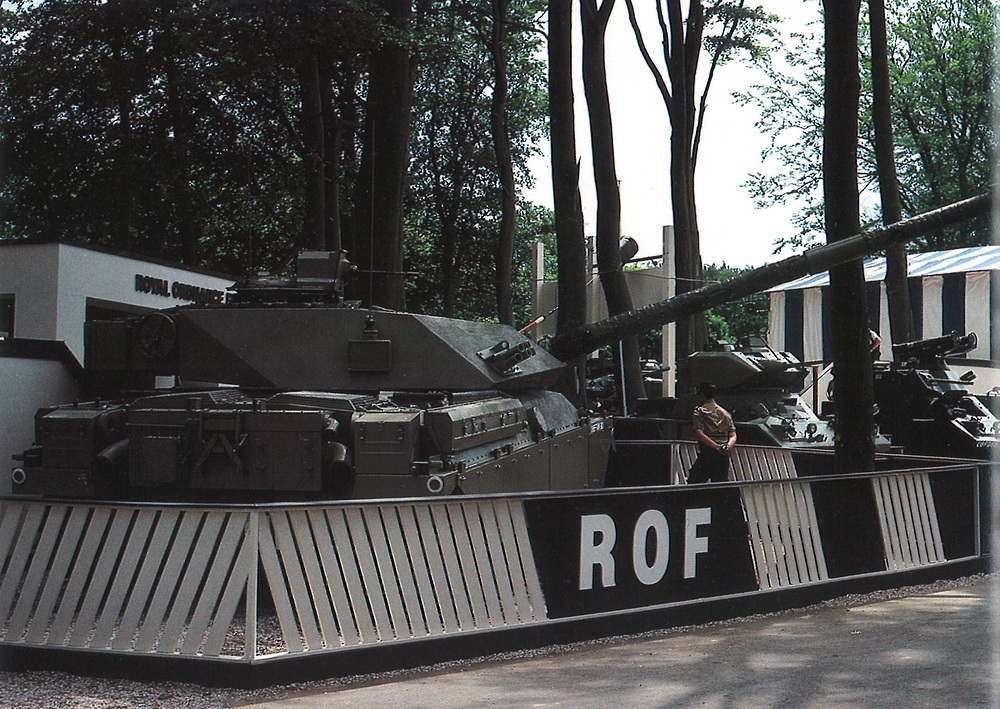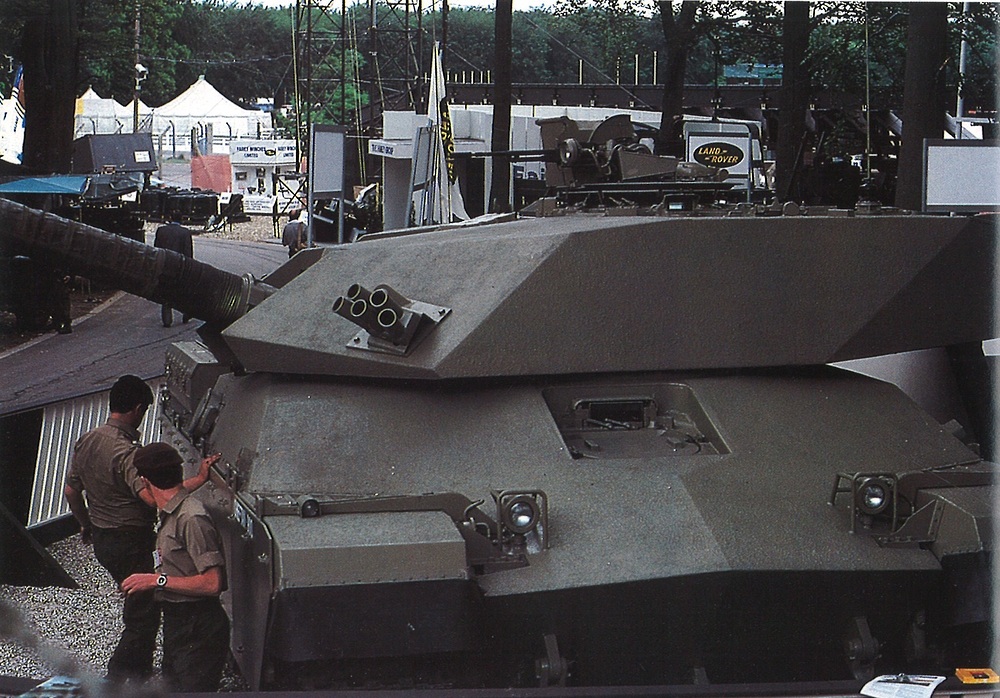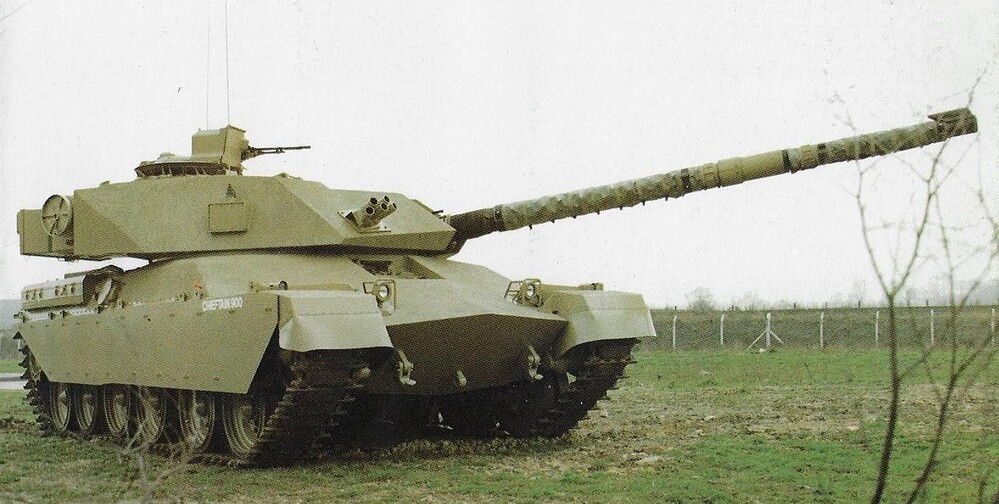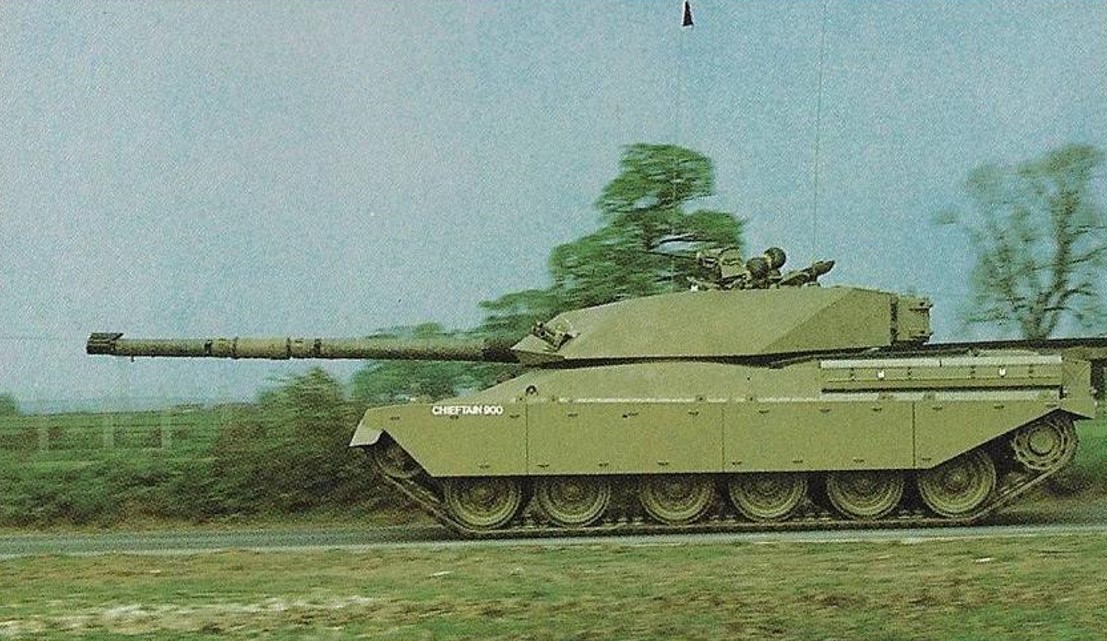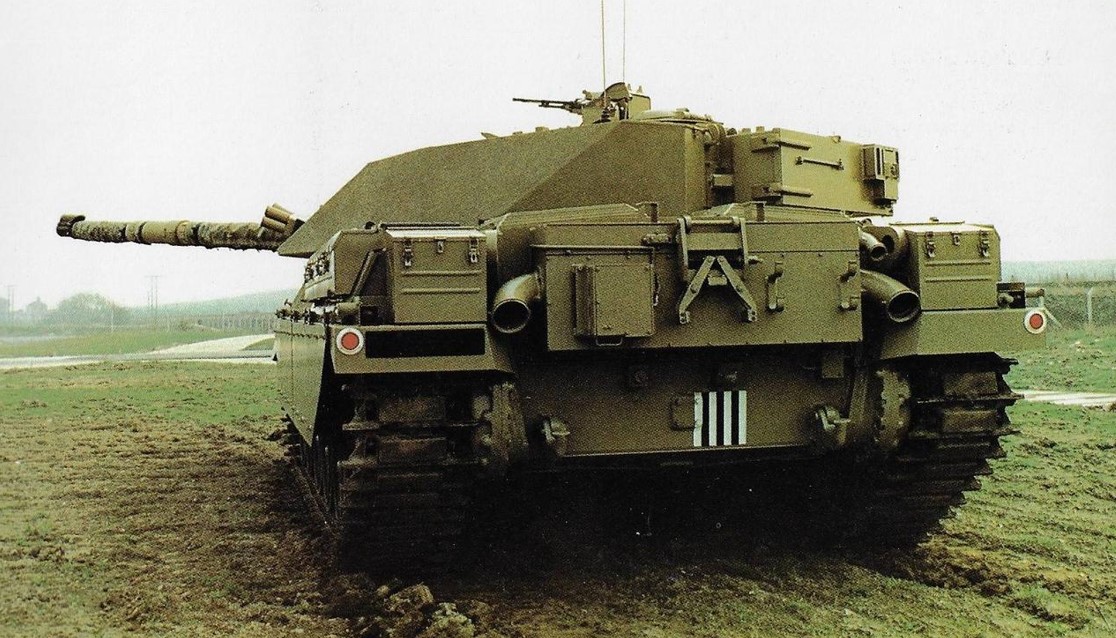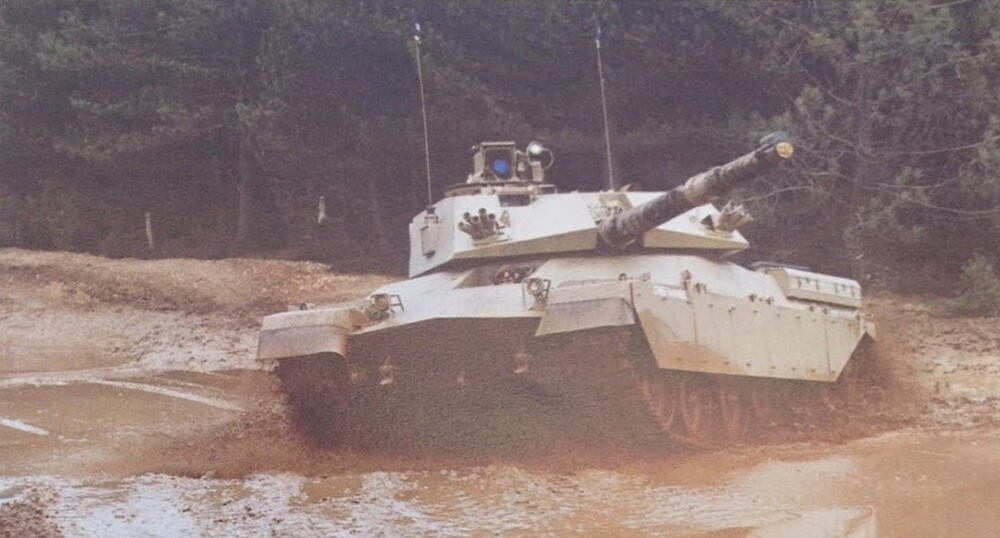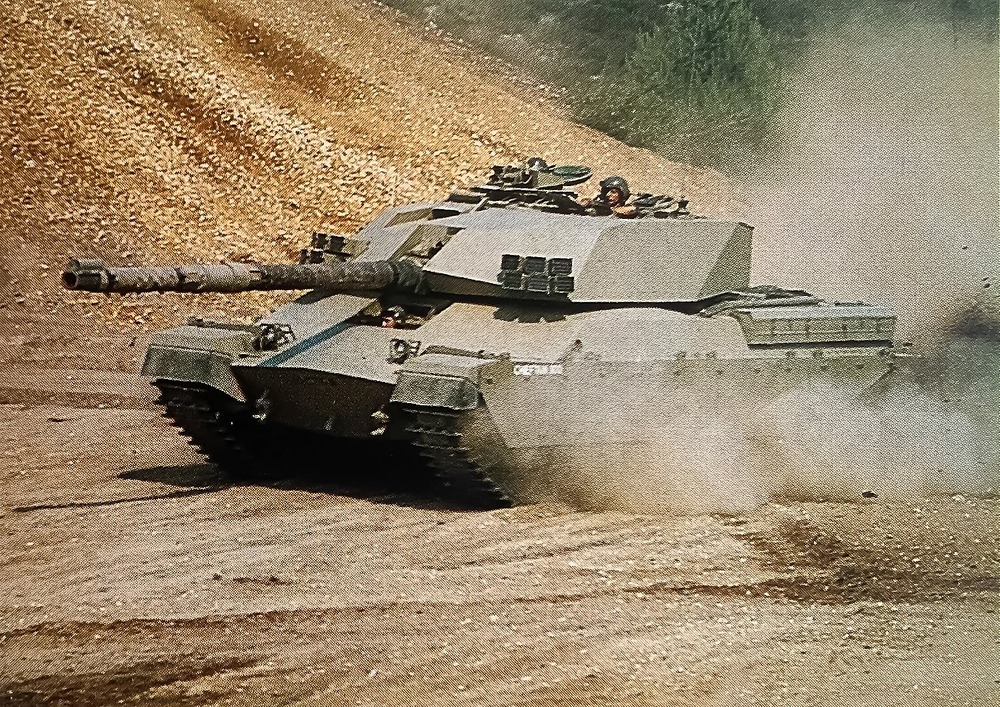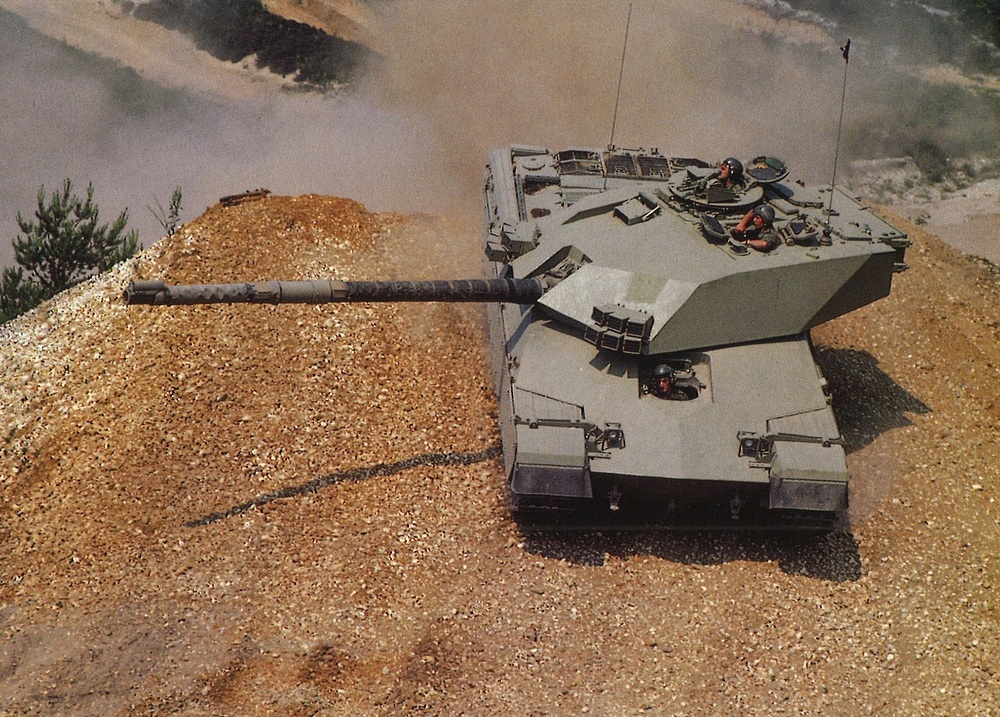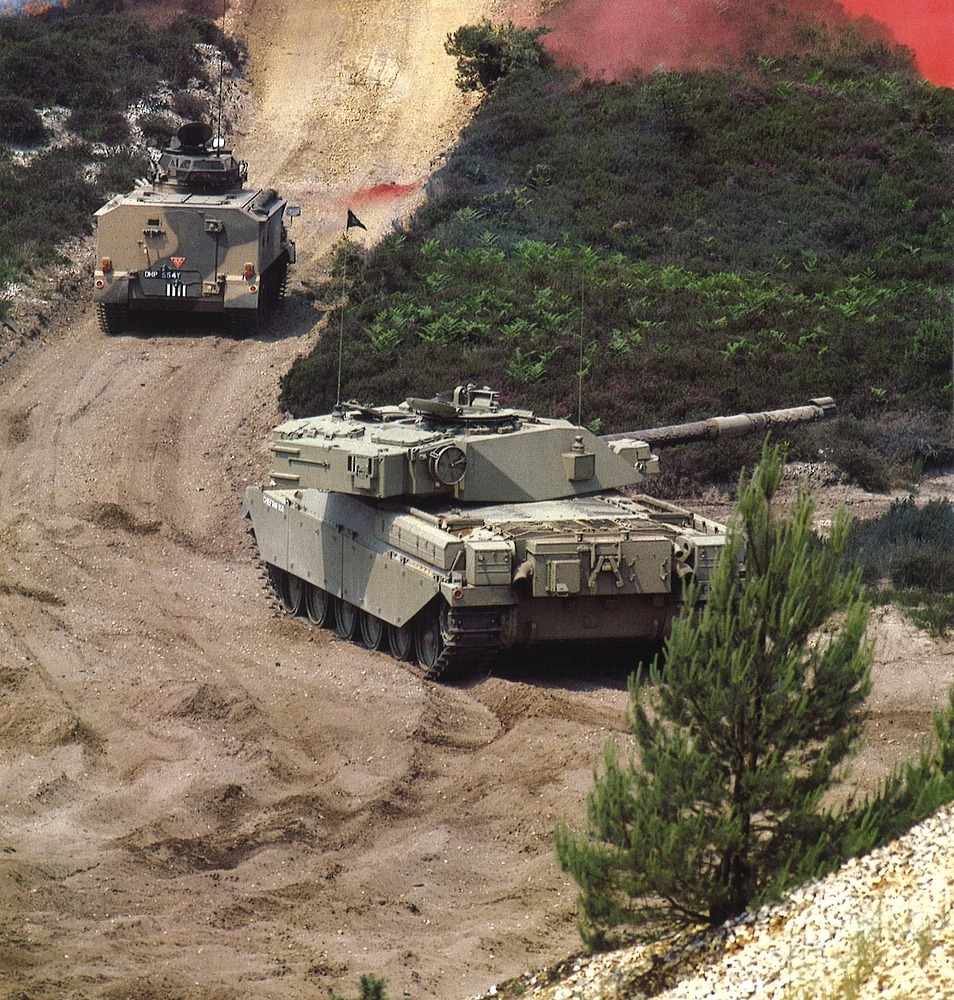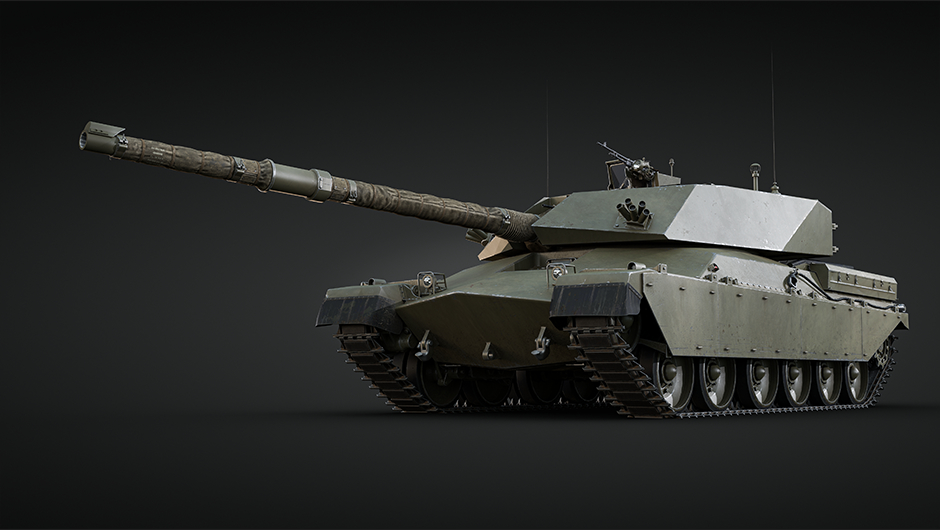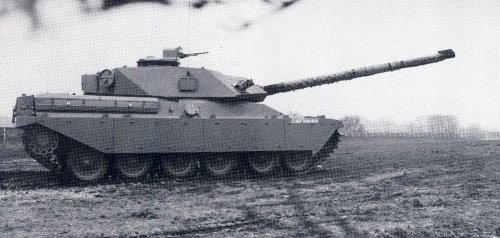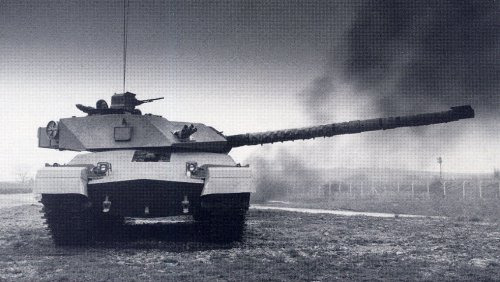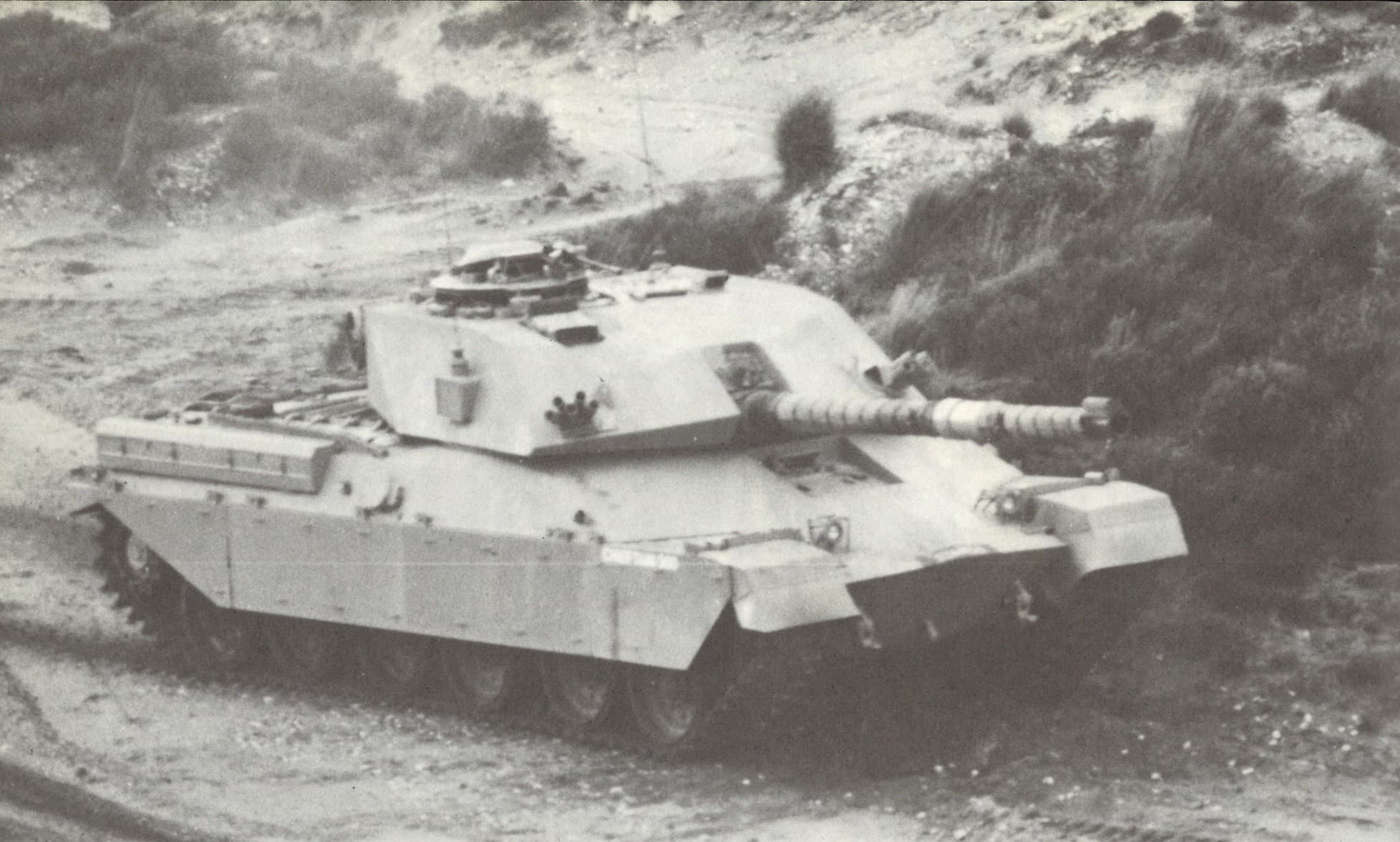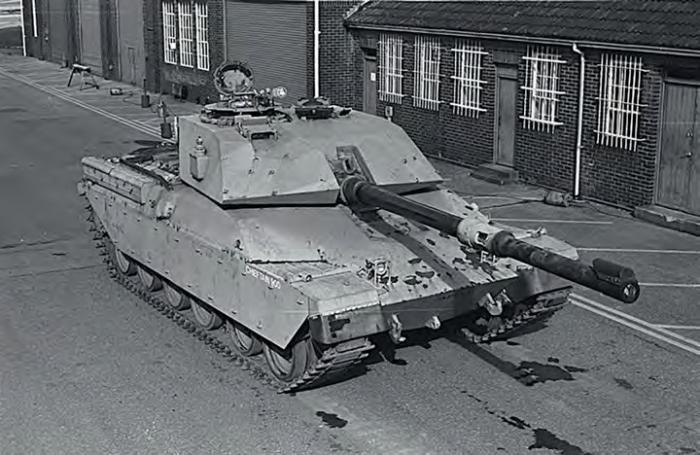- Yes
- No
Introduction and History
The Chieftain 900 was a privately funded venture from Royal Ordnance Factories (ROF), initiated in late 1981. It was an attempt to develop a modernisation package for Britain’s aging fleet of Chieftain MBTs, which were soon to be replaced with the Challenger 1. Primarily aimed at the export market, the modernisation scheme saw little to no interest, a consequence of poor relations with export customers, the generally poor international reputation of the Chieftain tank, and the advanced age of the Chieftain platform.
The Chieftain 900 was based on a late production Chieftain chassis, with significant improvements to the 3 main properties of a tank: Protection, firepower, and mobility.
The protection upgrades are the most obvious, and they come from the generous additions of Chobham armour to the hull and turret fronts. This is the same composite armour found on the Challenger 1 MBT. The Chobham armour installed on the marketing vehicles is indicated by some sources to only be a mock-up, but it goes without saying that production variants of the vehicle would be fitted with the real stuff. The exact thicknesses of Chobham armour are unknown, but a reasonable estimates could be made based on the size and weight of the vehicle.
The mobility upgrades come from the Rolls Royce Condor 900E 12 Cylinder diesel engine, rated to 900hp, as well as the automatic 8-speed (6 forward 2 back) TN12-1000 Gearbox. This gearbox is also capable of regenerative steering, which may at some point be relevant to War Thunder! The engine is cooled by hydraulic fans, allowing continuous operation in temperatures of up to 52 degrees celsius.
Firepower upgrades are found in the form of an improved FCS, L23 APFSDS, and infrared detectors. In terms of FCS, ROF offered a range of options to export customers, including the Marconi Space and Defence Systems Improved Fire-Control System, Marconi Radar SFCS 600, Marconi Radar Centaur, Ferranti Falcon, and a number of options from Barr and Stroud.
Two prototype vehicles were completed in early 1982, and following successful automotive trials were shown for the first time at British Army Equipment Exhibition (BAEE) 1982. As said earlier, the vehicle did not manage to attract any firm export customers and it was not developed past the prototype stage. The hull of one of the vehicles was sent to Italy, to test a new Marconi turret, but that won’t be discussed further here.
Specifications:
Spoiler
Crew: 4
Combat Weight: 56 000kg
Power to Weight Ratio: 16 hp/tonne
Ground Pressure: 0.95kg/cm3
Hull Length: 7.52m
Hull+Gun Length: 10.8m
Width: 3.51m
Height: 2.44m
Max Speed (Road): 52kph
Fording: 1.07m
Trenching: 3.15m
Engine: Rolls-Royce Conder 900E 12 Cylinder Diesel @ 900hp
Auxiliary Engine: Coventry Climax H30 3-Cylinder diesel @ 37hp
Transmission: TR12-1000 epicyclic, 6 forward 2 reverse
Steering: hydraulic operated regenerative disc steering brakes incorporated into gearbox
Armament (main): 1 x 120mm L11A5
Armament (co-axial): 1 x 7.62mm L8A2
Armament (anti-air): 1 x 7.62mm L37A2
Smoke Laying: 2 x 5 smoke dischargers
Ammunition (main): 64 rounds
Ammunition (auxiliary): 4000 rounds
Turret Traverse: Electric/Manual
Commander Override: Yes
Traverse Rate: 18 seconds for 360 degrees (20 degrees per second)
Max Elevation: -10, +20
Elevation Rate: 6 seconds for 30 degrees (5 degrees per second)
Gun Stabiliser: Vertical and Horizontal
Images:
Sources:
Spoiler
Official Royal Ordnance Factories Marketing Brochure (Available here)
Jane’s armour and artillery 1983-84 Page 80-83 (Available here)
Dunstan, Simon - Chieftain Main Battle Tank 1965–2003, Osprey Publishing, 2012
Griffin, Rob - Chieftain, The Crowood Press, 2001

